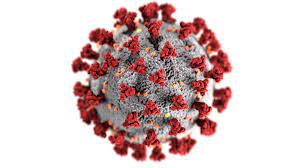The COVID-19 pandemic

How COVID-19 Started
The COVID-19 pandemic, caused by the virus SARS-CoV-2 (severe acute respiratory syndrome coronavirus 2), began with an outbreak in Wuhan, China, in December 2019. Initially affecting parts of Asia, it quickly spread worldwide by early 2020. The World Health Organization (WHO) declared the outbreak a Public Health Emergency of International Concern (PHEIC) on 30th January 2020 and officially classified it as a pandemic on 11th March 2020.
Symptoms of COVID-19
COVID-19 symptoms can range from mild to life-threatening. Common symptoms include fever, cough, sore throat, fatigue, and loss of taste or smell. However, some people show no symptoms (asymptomatic). The virus mainly spreads through airborne particles, and mutations over time have led to the emergence of various variants with different levels of infectivity and severity.
COVID-19 vaccines and treatments
Vaccines for COVID-19 were developed and distributed quickly, starting in December 2020. These were made available through both national efforts and international programmes like COVAX, which aimed to ensure equitable access to vaccines globally.
In addition to vaccines, antiviral drugs and treatments aimed at managing symptoms have been developed. Public health measures introduced during the pandemic included travel restrictions, lockdowns, workplace safety protocols, mask mandates, testing, contact tracing, and quarantine requirements. Countries like Australia implemented strict border closures to prevent the spread of the virus.
Social and economic impact
The pandemic led to severe social and economic disruption globally, resulting in the largest economic recession since the Great Depression. Supply chain interruptions caused shortages in many areas, including food, which were made worse by panic buying.
There were also some positive environmental impacts, as reduced human activity temporarily lowered pollution levels. Most countries implemented partial or full closures of schools and public spaces, and many events, such as sporting and entertainment activities, were postponed or cancelled during 2020 and 2021.
Remote working and misinformation
Remote working became widespread among office workers during the pandemic and remains common today, with many employees now working from home several days a week.
Misinformation about the virus and vaccines spread rapidly, particularly on social media, contributing to political divisions. The pandemic also highlighted issues of racial and geographic discrimination, health inequalities, and the tension between public health measures and individual freedoms.
WHO declares end of Global Health Emergency
On 5th May 2023, the WHO declared the end of the COVID-19 public health emergency, although the virus continues to circulate. As of October 2024, the pandemic has resulted in over 7 million confirmed deaths globally. COVID-19 remains one of the deadliest pandemics in history.
For the most up-to-date advice and guidance on COVID-19, please visit the NHS website or GOV.UK.